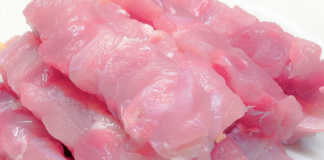
Photo: FW Archive
German farmers are currently feeling less confident about business performance for the next 12 months than they were six months ago. Farmers in France are even more pessimistic. By contrast, farmers in the UK and Poland continue to report stable business performance expectations.
This is according to the northern hemisphere autumn 2014 survey compiled by Dr Achim Schaffner for the German Agricultural Society (DLG), and taking in Germany, France, Poland and the UK. The areas covered include farmers’ views of the current agribusiness situation, their performance expectations for the next 12 months, willingness to invest, and how farmers hope to spend this money.
Current situation
Farmers in Germany are generally satisfied with the current agribusiness situation due to the positive economic results achieved in recent months (Figure 1). By and large, farmers in Poland and the UK have not changed their assessment since autumn 2013, mainly because they are less reliant on exports than their counterparts in Germany.

Annual survey of German, French, UK and Polish farmers’ confidence in the current agribusiness situation.
(Figures courtesy of the German Agricultural Society)
The current agribusiness situation is viewed less positively by French farmers. They are dissatisfied with their country’s agricultural policies. In addition, thanks to France’s weakening position on international markets, farmers have profited to a much lesser degree from the favourable economic conditions of the past few months.
Performance expectations
Farmers in Germany, the UK and France are less confident about their agribusiness performance over the coming 12 months,
whereas the confidence of Polish farmers has remained steady (Figure 2). German dairy farmers are particularly sceptical about their prospects due to sharply increasing milk volumes around the world, which mean that milk prices are likely to remain under pressure.

Annual survey of German, French, UK and Polish farmers’ confidence in agribusiness over the following 12 months. (Figures courtesy of the German Agricultural Society)
The country’s pig farmers face a similar situation because the large number of pigs available for slaughter, together with Russia’s banning of pork imports, have resulted in sustained heavy pressure on producer prices. Hopes for a revival of Germany’s domestic demand for pork remain unfulfilled. While providing some relief on the cost side of German pig production, reduced feedstuff prices are not enough in themselves to generate a more optimistic mood.
The scepticism of Germany’s commercial crop farmers regarding their future agribusiness performance is at the same level seen in autumn 2010. The record global grain harvest is pushing down the price of grain, and this is expected to continue over the coming months. Although lower energy and fertiliser inputs have provided some relief to the costs of production, these cannot offset the difficult prospects currently faced by German grain farmers.
The same is true for Germany’s grain exports. Although currently brisk, they will be unable to reverse the trend in the domestic grain market. Agribusiness performance expectations have declined slightly in the UK. The recovery after a disastrous 2012 has come to a halt for the time being, largely due to an increasingly difficult market environment.
In France, the current domestic market difficulties and the agricultural policy debate regarding the redistribution of direct payments have led to a further marked decline in French farmers’ agribusiness expectations for the next 12 months.
In addition, France’s livestock farmers are hampered by the continued reduction of the national pig herd.
Farmers in Poland expect agribusiness performance to continue on an even keel. The halt in the reduction of the Polish national pig herd has improved the pig farming situation there. The trend in milk production is also positive, with volumes increasing despite shrinking herds. With an eye on the future, many dairy farms are expanding and improving productivity.
Willingness to invest
Investment intentions for agribusinesses in Germany remain stable at 51% (Figure 3). German dairy and pig farmers have been particularly interested in investing, with the former showing a 4% rise to 54% and pig farmers up 2% to 50% compared with autumn 2013. The investments are partly targeted towards achieving higher production standards and partly towards optimising production. The latter is becoming increasingly important as a means of farm development because expansion is restricted due to the high cost of land.

German crop farmers’ willingness to invest is virtually unchanged from autumn 2013’s figure of 51%. Agribusiness investment intentions in the UK are up a staggering 24% on the level reported by the autumn 2013 survey and now stand at 55%. Poland’s farmers are continuing down the path of expansion and modernisation, showing an above-average willingness to invest, with 51% intending to do so in the next 12 months.
Whereas 28% of French farmers indicated in autumn 2013 that they intended to invest in their farming businesses over the next 12 months, this has shrunk to just 14%. French commercial crop farmers’ willingness to invest has halved and there has been a 10% drop in investment interest on the part of the country’s dairy farmers.
Changes in Investment
A look at agribusiness investment areas reveals various shifts (Figure 4). Some 50% of German farmers’ investment will be in arable farming, up 7% on the autumn 2013 survey result. Approximately 40% will be in livestock farming, down 4%. Farmers in France are planning increased investments in livestock farming, whereas in Poland investments are focused on arable farming.
Investing in bio-energy has grown in importance for farmers in the UK.

Reasons for investing
The farmers surveyed have a variety of reasons for investing. In Germany, farmers are mainly concentrating on the replacement of existing machinery and equipment, and on the optimisation of ongoing production. The high and constantly increasing cost of land, a growing scarcity of workers in agricultural contracting companies, and a short supply of workers on family farms, are seeing farmers focus on improving land and labour productivity.
In Poland, farmers are looking to expand, with 40% wanting to further develop their core business segments. In France, farmers are keen to catch up on previously postponed investments – an indication of the currently lethargic state of farming in that country.
In the UK, 30% of farmers are seeking to optimise production. Improvements to animal welfare in farming are a focal point for 59% of German farmers surveyed, 64% of UK farmers surveyed, and 55% of Polish farmers surveyed. Farmers are greatly interested in innovations that improve animal husbandry methods. Data processing is another priority – 52% of German farmers, 49% of French farmers, and 46% of Polish farmers regard innovations in this area as important.
The aim is to be able to make better use of data generated during production and to increase its use as a decision-making tool.
In addition to the use of data processing for production purposes, the processing and interpretation of data is also important when it comes to services. The survey found that, for respondent farmers, on-site data processing on farms is more important than big data web-based solutions.
Rates of investment
Rates of agribusiness investment across Europe are holding up despite difficult market environments at present. Current levels are seeing attractive financing terms for investments and boosting the high willingness to invest. Rising tenancy costs and production standards, combined with ever more difficult access to skilled workers, are resulting in structurally increasing production costs, which farmers aim to mitigate by optimising production.
The efficient use of land and labour, as well as firm cost management, are crucial for farms’ development and for securing liquidity in this current period of weak prices. Slower investment growth is to be expected in general with regard to milk production, as preparations for the end of quotas in 2015 are completed in the next few months.
Farmers are focusing on improving animal welfare and on analysing production data more effectively. Farm managers are therefore interested in innovations in these areas to help them improve their husbandry methods and management systems. – Lloyd Phillips
From a document translated from the German. Email Dr Achim Schaffner at the DLG’s Competence Centre: Agriculture and Food Business at [email protected]. Website: www.dlg.org.
This article was originally published in the 12 December 2014 issue of Farmers Weekly.













